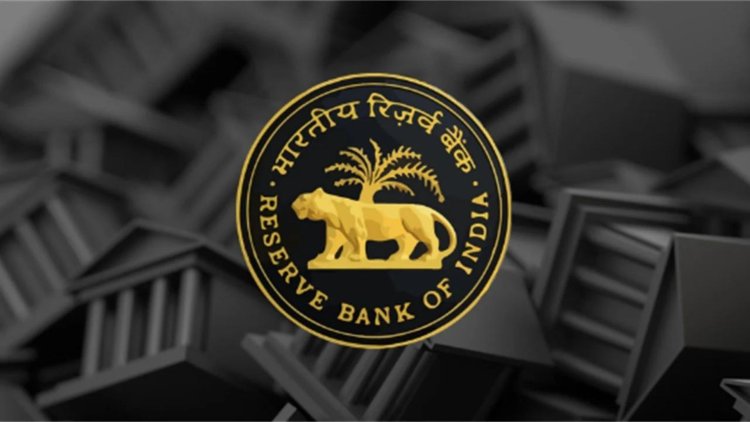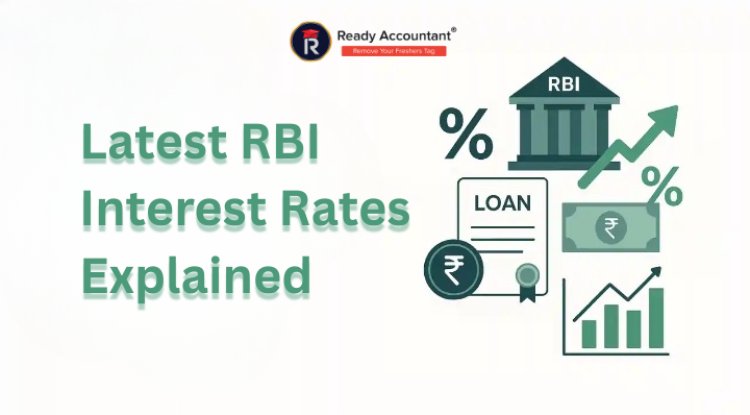RBI’s Four Bold Moves to Strengthen India’s Banking Future
The Reserve Bank of India has introduced four bold measures to strengthen India’s banking future—improving capital adequacy, promoting digital banking with stronger cybersecurity, enforcing better governance and transparency, and expanding financial inclusion. These reforms aim to make banks safer, more transparent, and accessible to all, while supporting economic growth and investor confidence. They also open new career opportunities for professionals skilled in Certified Corporate Accounting, SAP FICO (Finance & Controlling), and Taxation (Income Tax & GST), as demand rises for experts in compliance, digital finance, and risk management.

The Reserve Bank of India (RBI) plays a vital role in keeping India’s banking system strong and reliable. With growing challenges like rising NPAs (bad loans), digital fraud, and the need for financial inclusion, the RBI has taken some big steps to make sure banks are stable, transparent, and ready for the future.
In this article, we’ll break down RBI’s Four Bold Moves to Strengthen India’s Banking Future, explain why they matter, and also look at how these changes create opportunities for professionals skilled in Certified Corporate Accounting, SAP FICO (Finance & Controlling), and Taxation (Income Tax & GST).
Why These Moves Are Important
Banks are the backbone of India’s economy. They provide loans to businesses, support small entrepreneurs, and help households save and invest. But to handle future challenges, Indian banks need to be:
-
Stronger financially,
-
More digital and secure,
-
Transparent in operations, and
-
Accessible to everyone, including rural India.
That’s exactly what RBI’s four bold measures aim to achieve.
The Four Bold Moves by RBI
1. Stronger Capital and Risk Control
Banks must keep enough capital to deal with risks like loan defaults or market crashes. RBI has tightened capital rules and asked banks to follow stronger risk management practices.
Why this matters:
-
Makes banks safer and less likely to collapse.
-
Ensures loans can continue to flow into the economy.
For professionals: Skills in Certified Corporate Accounting and SAP FICO are valuable because banks need experts who understand risk reporting, compliance, and financial planning.
2. Digital Banking and Cybersecurity
India is moving fast towards digital payments through UPI, net banking, and mobile wallets. RBI is now focusing on making digital banking more secure by:
-
Strengthening fraud detection systems,
-
Enforcing strict authentication,
-
Using AI and advanced technology to fight cybercrime.
Why this matters:
-
Customers get safer transactions.
-
Banks reduce the risk of digital fraud.
For professionals: SAP FICO and accounting experts will find new opportunities in digital finance, fintech, and system integration.
3. Better Governance and Transparency
RBI wants banks to be more accountable. It has introduced stricter rules for board members, audits, and financial disclosures.
Why this matters:
-
Increases public trust in banks.
-
Reduces the chance of fraud and mismanagement.
For professionals: Knowledge of Taxation (Income Tax & GST) is in demand, as compliance and tax transparency are now critical for banks and financial institutions.
4. Expanding Financial Inclusion
RBI is pushing banks to reach people in rural and remote areas by supporting:
-
Payment banks,
-
Microfinance institutions, and
-
Credit access for small businesses.
Why this matters:
-
More people get access to banking services.
-
Small entrepreneurs can grow their businesses.
-
India moves closer to 100% financial inclusion.
For professionals: Careers in microfinance, NBFCs, and inclusive banking are growing. Skills in Corporate Accounting and Taxation will help professionals serve this expanding sector.
What These Moves Mean for Careers
These measures will not only strengthen banks but also open up career opportunities in finance and accounting.
-
Certified Corporate Accounting: Banks and companies need experts to handle complex reporting and compliance.
-
SAP FICO (Finance & Controlling): Digital banking and ERP systems require skilled professionals to manage financial data and controls.
-
Taxation (Income Tax & GST): Transparency means more demand for tax experts who can ensure correct filings and compliance.
In short, the reforms increase the demand for skilled professionals across multiple finance domains.
Bigger Picture: Impact on the Indian Economy
-
Economic Growth: Stronger banks = better lending for businesses and infrastructure.
-
Investor Confidence: Transparency attracts both Indian and foreign investors.
-
Jobs: More roles in fintech, accounting, taxation, and digital finance.
-
Global Position: Aligning with international standards makes India’s banking sector more competitive worldwide.
Final Thoughts
RBI’s Four Bold Moves to Strengthen India’s Banking Future are not just policy updates. They are a blueprint for a safer, stronger, and more inclusive banking system. These steps will support growth, build trust, and prepare India for the digital financial age.
For students and professionals, this is the right time to upskill in Certified Corporate Accounting, SAP FICO (Finance & Controlling), and Taxation (Income Tax & GST). With the right expertise, you can build a rewarding career while contributing to India’s financial future.
What's Your Reaction?



















